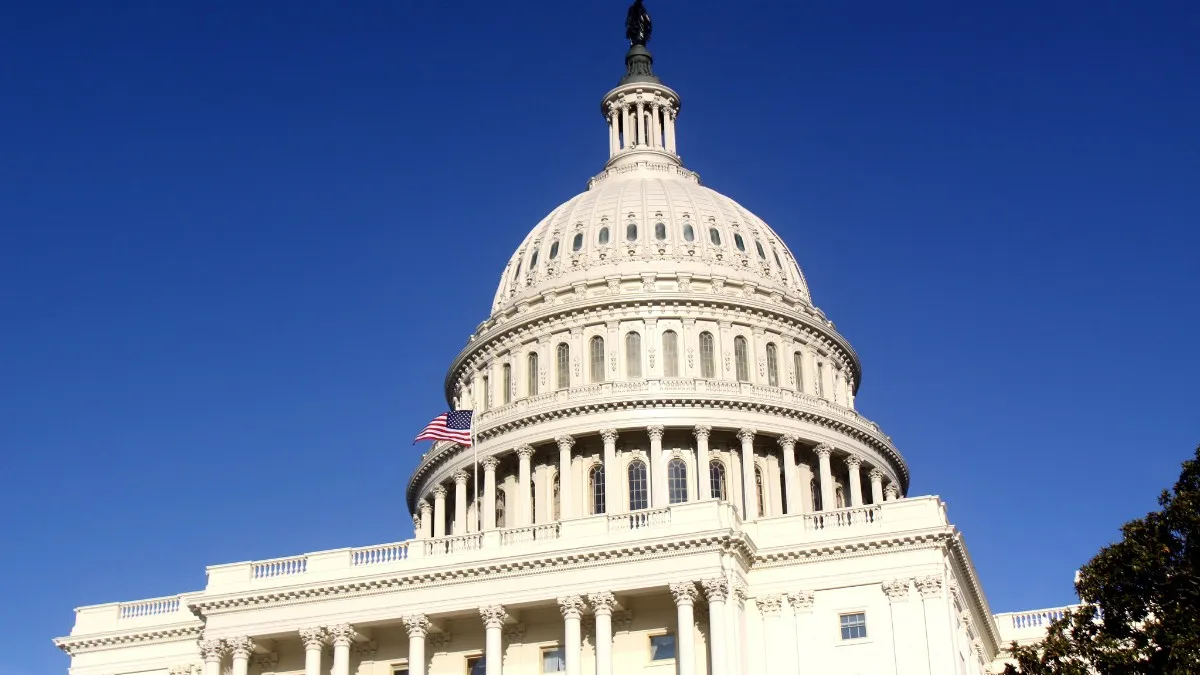Dive Brief:
-
The $2 trillion coronavirus relief bill, which the Senate passed 96-0 on Wednesday night, could allow fintechs to provide Small Business Administration (SBA) loans.
-
Under the Paycheck Protection Program, which allows the SBA to distribute $350 billion to small businesses with 500 or fewer employees, lenders that are not participants in the SBA’s 7(a) program would be able to provide loans directly through the Treasury Department.
-
The bill says the authority to make loans shall be extended to "additional lenders" determined by the SBA and the Treasury Department to have the necessary qualifications to process, close, disburse and service loans made with the guarantee of the SBA.
Dive Insight:
Fintech lenders such as Kabbage and Funding Circle have been lobbying for Congress to pass legislation that would allow nonbanks to participate in the SBA’s emergency loan program in an effort to help get cash to small businesses quicker.
"The language does include opportunity for fintechs to support, but it's now up to the Treasury to finalize the definition. We're working closely on this," Sam Taussig, Kabbage's global policy head, told Banking Dive. "This is not the time to debate the definition of a bank, this is the time to help small businesses."
In an interview last week, Taussig told Banking Dive the company is concerned the SBA will not have the capacity to respond to a widespread disaster like the one brought on by the coronavirus.
"It’s tooled to respond to disasters like hurricanes, after the fact, where physical damage was sustained," he said.
Ryan Metcalf, head of U.S. regulatory affairs and social impact at Funding Circle, told Forbes nonbank online lenders have a critical role to play in the crisis.
"Funding Circle approves loans in under 24 hours and funds them in three days, whereas banks take on average a little over a month," he said. "Looking at SBA disaster relief funds, it’s over 30 days for those."
The trade group Financial Innovation Now (FIN), which represents fintechs Square, PayPal, Intuit and Stripe, has also been vocal in its calls to allow nonbank lenders to participate in the coronavirus relief effort.
In a letter sent to Congress last week, the group asked that its members be included in emergency U.S. government funding.
"FIN is concerned that many small businesses will run out of working capital in less than three weeks," the group said. "Small businesses are not well served by traditional financial institutions, nor will existing federal small business loan programs deliver funds soon enough."
As social distancing and mandatory shelter-in-place orders affect businesses across the country, many have started laying off workers.
Initial jobless claims soared to 3.28 million last week, according to data released Thursday by the Department of Labor.
"If there's no revenue coming in, then the small businesses will begin to make tough economic decisions, whether that's paying rent or their mortgage or laying off employees," Taussig said.












